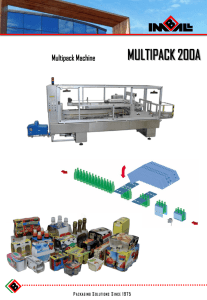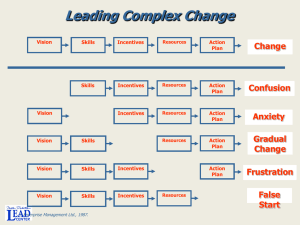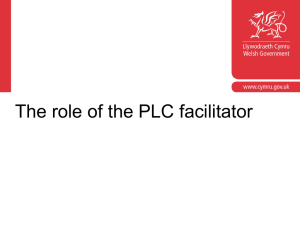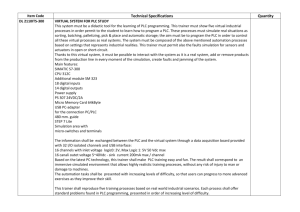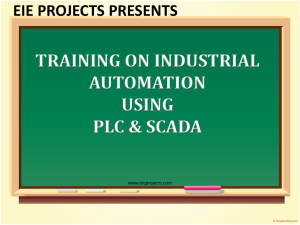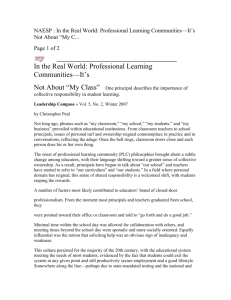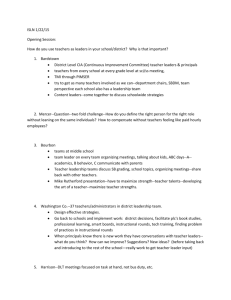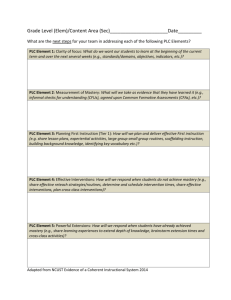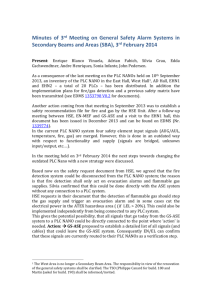Professional Learning Community Mini
advertisement
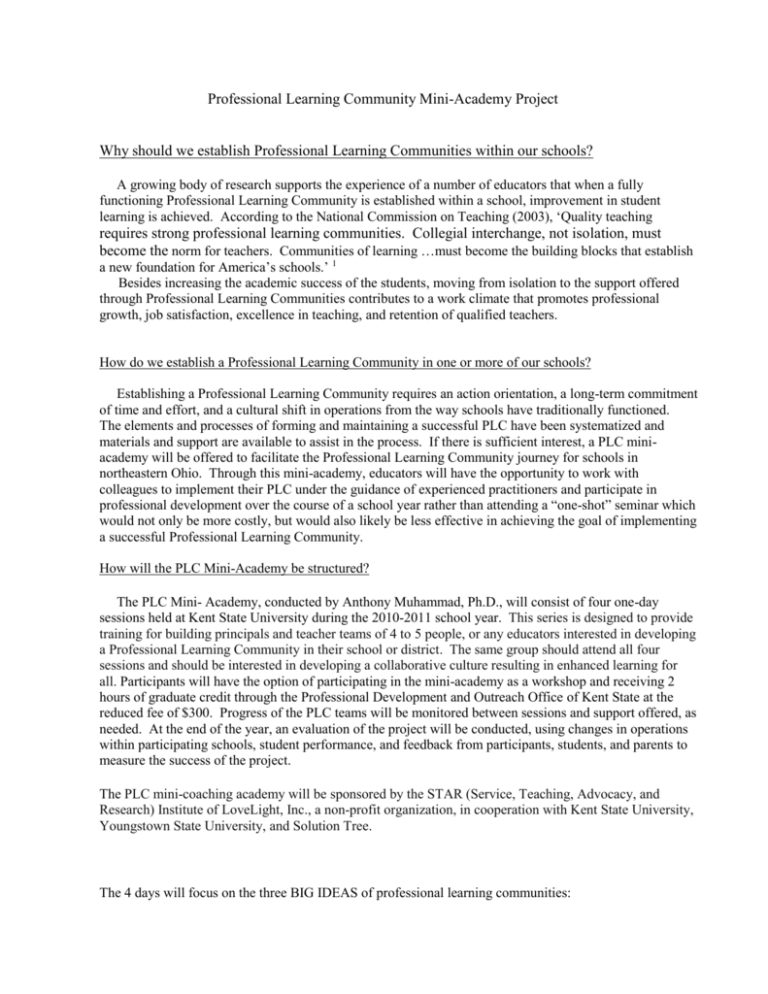
Professional Learning Community Mini-Academy Project Why should we establish Professional Learning Communities within our schools? A growing body of research supports the experience of a number of educators that when a fully functioning Professional Learning Community is established within a school, improvement in student learning is achieved. According to the National Commission on Teaching (2003), ‘Quality teaching requires strong professional learning communities. Collegial interchange, not isolation, must become the norm for teachers. Communities of learning …must become the building blocks that establish a new foundation for America’s schools.’ 1 Besides increasing the academic success of the students, moving from isolation to the support offered through Professional Learning Communities contributes to a work climate that promotes professional growth, job satisfaction, excellence in teaching, and retention of qualified teachers. How do we establish a Professional Learning Community in one or more of our schools? Establishing a Professional Learning Community requires an action orientation, a long-term commitment of time and effort, and a cultural shift in operations from the way schools have traditionally functioned. The elements and processes of forming and maintaining a successful PLC have been systematized and materials and support are available to assist in the process. If there is sufficient interest, a PLC miniacademy will be offered to facilitate the Professional Learning Community journey for schools in northeastern Ohio. Through this mini-academy, educators will have the opportunity to work with colleagues to implement their PLC under the guidance of experienced practitioners and participate in professional development over the course of a school year rather than attending a “one-shot” seminar which would not only be more costly, but would also likely be less effective in achieving the goal of implementing a successful Professional Learning Community. How will the PLC Mini-Academy be structured? The PLC Mini- Academy, conducted by Anthony Muhammad, Ph.D., will consist of four one-day sessions held at Kent State University during the 2010-2011 school year. This series is designed to provide training for building principals and teacher teams of 4 to 5 people, or any educators interested in developing a Professional Learning Community in their school or district. The same group should attend all four sessions and should be interested in developing a collaborative culture resulting in enhanced learning for all. Participants will have the option of participating in the mini-academy as a workshop and receiving 2 hours of graduate credit through the Professional Development and Outreach Office of Kent State at the reduced fee of $300. Progress of the PLC teams will be monitored between sessions and support offered, as needed. At the end of the year, an evaluation of the project will be conducted, using changes in operations within participating schools, student performance, and feedback from participants, students, and parents to measure the success of the project. The PLC mini-coaching academy will be sponsored by the STAR (Service, Teaching, Advocacy, and Research) Institute of LoveLight, Inc., a non-profit organization, in cooperation with Kent State University, Youngstown State University, and Solution Tree. The 4 days will focus on the three BIG IDEAS of professional learning communities: 1. FOCUS ON LEARNING What do we want students to learn? How will we know if they have learned it? What will we do if they have not learned it? What will we do if they already know? 2. BUILD A COLLABORATIVE CULTURE No school can help all students achieve at high levels if teachers work in isolation. Schools improve when teachers are given the time and support to work together to clarify essential student learning, develop common assessments for learning, analyze evidence of student learning, and use that evidence to learn from one another. 3. FOCUS ON RESULTS PLCs measure their effectiveness based on the evidence of results rather than intentions. All programs, policies, and practices are continually assessed on the basis of their impact on student learning. All staff members receive relevant and timely information on their effectiveness in achieving intended results. Who is the Presenter? Author and educational consultant Anthony Muhammad, Ph.D. has been a teacher, assistant principal, and principal at the middle school level as well as a principal at the high school level. Named Michigan Middle School Principal of the Year in 2005, Dr. Muhammad led Levey Middle School in Southfield, Michigan from an academically struggling to academically successful institution: over a five-year period, student proficiency, as measured by state assessments, more than doubled and Levey has now received recognition as a National School of Excellence. How much will it cost to participate in the PLC Mini-Academy? Fee per person of $507.40 ($2,537 per 5-person team), which represents a reduction from the cost of $662.60 ($3,313 per 5-person team), includes: 1. 4 days of training over the course of the school year 2. monitoring and support between training days 3. food and supplies at the training event 4. books for participants as follows: Each person- Learning by Doing and Pyramid Response to Intervention Each principal- The Principal as Assessment Leader Each teacher/coach- The Teacher as Assessment Leader Each team- Handbook for SMART School Teams Optional 2 hours of graduate from Kent State University would be an additional $300 per person, discounted from the current tuition of $844. ---------------1 National Commission on Teaching, (2003, p. 17). Quoted in DuFour, R., DuFour, R., Eaker, R., & Karhanek, G. (2004). Whatever it takes: How professional learning communities respond when kids don’t learn. Bloomington, IN: Solution Tree. For further information, please contact Lisbeth K. Justice, Ph.D. at lkjusti1@kent.edu or (330) 673-5839.
